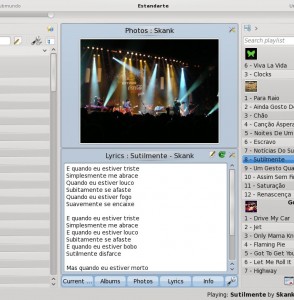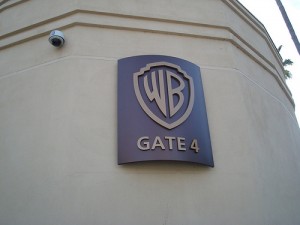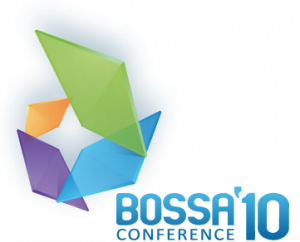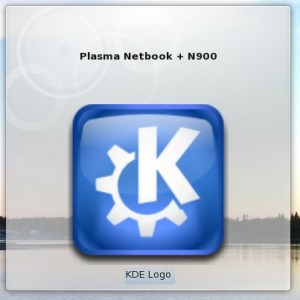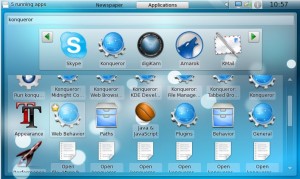Recently there was a lot of noise regarding the new coolest guy on the street: Google Chrome OS. I was traveling and just today I could read all my feeds, emails and put everything on the right place 🙂
Some people talked about it but I usually don’t pay attention or even read some articles but unluckily I was doing some reviews of Palm Pre, the new Zune and other devices and it’s software and for some reason I landed in the article of Free Software Magazine regarding Google Chrome OS and how KDE and GNOME shot each other on the head. I really don’t pay attention to any flame wars or trolls and usually just ignore these topics as they don’t take us anywhere. But this one got my attention (unluckily, again).
I’m writing about it for a few reasons: first the (lack) of technical background present in the article (I really don’t know the author and I’m not judging his technical skills besides the ones shown in the article), second due the fact of being a “Free Software” magazine (as it points out in the domain name at least) and third due the fact that people just love hype :).
First Act
Let’s talk about technical facts. If I remember correctly the author says that Chrome OS will use a “GNU/Linux” kernel. There is no such thing. The kernel is Linux: period. If it will use a GNU/Linux system is another history. Then there is this talk about Pulseaudio and this is a “hot topic” in the Linux audio system world.
There are people who like it and (from what I hear everyday in mailing lists and IRC channels) more people who doesn’t like it. Personally I don’t use it as I don’t have the need and my distro (slackware) does not ship it by default. The excuse of the author for the fact that Chrome OS was not using GNOME/KDE and/or GNU Linux was that none of them provides what Google wants and because there were too many options and none of them was good enough. If none of them is good enough I’ll let for the reader to decide about it but that is not why Google didn’t use it.
First of all Chrome OS will have the help of Canonical to build it’s stuff so probably behind the Webkit stuff that the user will see as the “workspace” it will just be a regular Linux distribution (probably Ubuntu based) behind the scenes. In the end it is a GNU/Linux based system.
One could argue about Android not using a GNU/Linux based system and people often confuse Android with Chrome OS (even Google doesn’t have an answer for it yet and Googlers says that probably in the future they will converge to the same thing). Android not using GNU/Linux is true and they don’t even use some common systems like HAL to handle hardware making some (ugly?) hacks to do what HAL would solve out of the box for them. But I understand their side and probably they had reasons to do that (dead lines, licenses, etc…).
Well, I’ll not talk about Google’s work right now. They are doing their job in the sense that they are presenting the world a new way of looking at the desktop. But some arguments like: “there are too many ‘desktops’ libraries” and this is due the fact GNU/Linux has two different desktop environments are just…how can I say…ah! these are arguments that comes from people with no technical background. I don’t write about economic stuff, do you know why ? Because I surely have an opinion, but I don’t have the technical background to write about it and I’ll probably just create more noise and confuse people instead of helping them understand something.
I’ll not extend myself more on this section as it can get too long: but arguments saying that applications have dependencies of .so and this is harmful to the user and proposing solutions that are already out there in ANY Linux distribution (bundle of libraries are packages and it’s dependencies if anybody has questions regarding this), etc.. just make noise and have no technical background.
Sometimes journalists/bloggers are the ones that write about everything without knowing anything and this leads to at least confusion.
Second act
I’m not sure if everybody knows that but Google is just arriving at Free Software world (as much other companies, like Nokia for example). The first approach of Google was being open source friend but not free software. And there is a huge difference.
Thanks to many people Google is changing this and becoming closer and closer to free software with initiatives such as Google Summer of Code, when they fund students to work on free software projects and much other initiatives.
But the point is that a “Free Software” magazine has an article attacking the free software community (I say attacking because there is no constructive feedback or review inside an article without technical background). Ok, you may be thinking that I’m beating too much in the “technical background” key, but even from the user’s point of view there are almost no valid arguments there besides the fact that we need to improve sound on Linux (big news here ;)).
So, we have a free software magazine, pushing a non free software initiative and talking about non sense stuff. Google has a great product on it’s hands and no doubt about it. But come on: if you want to compare KDE, GNOME and Chrome Workspace do it the proper way.
Third Act
Hype. It’s all about hype. Google Wave was the brand new silver bullet in the world. Everybody that is not a fan boy and seriously tried to used it know what I’m talking about. But the hype was so big because it was a Google’s product (and usually Google has great products) that everybody started creating use cases, theories and etc.. just due to that. No real use case, no real innovation. Just hype.
Again, Google has great products: GMail, Google Docs, Google Analytics, Google AdSense/AdWords, etc… But sometimes people start talking and expecting things just because of the hype. Trolls and fan boys are species that walks together in the world.
The same is happening with Chrome OS here. It’s not ready yet but people are already saying that it will be the best thing ever. Or even that very solid COMMUNITIES and the software around them are dead just because in one year somebody will bring a new product.
Examples from the past ? ‘Virtual reality’ (being used on browsers with VRML and videogames with those horrible goggles), ‘Java Applets’ (who don’t remember it being the final solution for dynamic web pages ???) or even ‘Director’ who was the killer application for multimedia stuff and would kill Flash ?
Final Act: Summary
Let’s just calm down and learn with each other. Gnome and KDE learned a lot of things with each other and with it’s own communities, Linux and the GNU/Linux distributions too.
Google has great products and can really create expectations on it’s users. Google search, maps, Android…all great products but all of them (as any other software) have problems and bugs (anyone using GMail’s imap?).
So please, for the next ones writing about the brand new thing that will kill all the others out there, calm down, write your opinion but just don’t start saying that projects are going to die if you don’t have any clue about it and don’t start guessing stuff. Want to write a user review ? Write it as a user review and about what is bad (maybe what is good too). But writing guessing articles tending to be a user review but pretending to be a technical article is not good for anybody.
Avoid shooting yourself in the foot.


